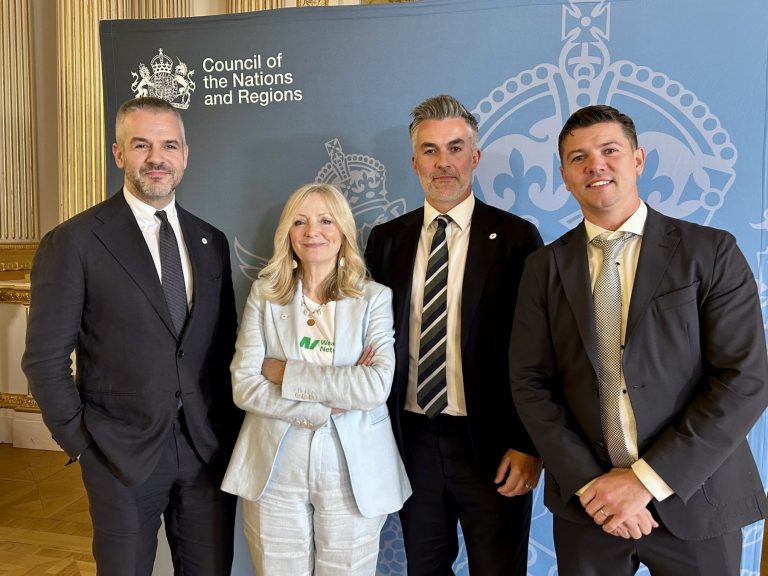Yorkshire’s four Metro Mayors have joined together with the co-chairs of the Yorkshire Leaders Board to write a letter to the chair of Yorkshire Water, asking the board how it is holding the leadership of the company to account for their poor performance, and expressing concerns over undisclosed payments to its CEO.
At a time when Yorkshire Water customers are facing a 41% increase in bills – after the company spilt sewage into the region’s rivers and waterways for more than half a million hours in 2023 – the Guardian has reported that CEO Nicola Shaw has received £1.3m in undisclosed extra pay via an offshore parent company.
Slamming the revelations as “wholly unacceptable,” the region’s four Mayors – Tracy Brabin, Luke Campbell, Oliver Coppard and David Skaith – have joined with the co-chairs of the Yorkshire Leaders Board to demand “clear answers” on behalf of customers and communities, as to why executive rewards continue to rise while service standards decline.
The full letter reads as follows:
Letter to Yorkshire Water Board Chair
From: The Yorkshire Mayors and Representatives of the Yorkshire Leaders Board
To: Ms Vanda Murray OBE, Chair of the Board, Yorkshire Water Services Ltd
Date: 8 August 2025
Dear Ms Murray,
We write to express our serious concerns regarding the recently disclosed executive remuneration arrangements at Yorkshire Water, particularly the additional £1.3 million in undisclosed payments made to Chief Executive Nicola Shaw via the offshore parent company Kelda Holdings over the past two years.
As elected representatives of Yorkshire’s communities, we share the public dismay at these revelations. At a time when Yorkshire Water customers are facing a 41% increase in bills alongside environmental failures, and customer service shortcomings, these arrangements are wholly unacceptable.
Track Record of Failure
The additional payments to Ms Shaw must be viewed against Yorkshire Water’s consistent pattern of poor performance.
A £40 million fine from Ofwat for excessive sewage spills, whilst the Environment Agency has awarded the company a “red rating” for pollution incidents. Not a single river in Yorkshire is considered to be in good overall health, with Ilkley Beach the most polluted waterway in the country.
Yorkshire Water was recently fined £865,000 at Sheffield Magistrates’ Court for illegally discharging chlorinated water resulting in the death of local wildlife. Meanwhile, customers are being asked to pay significantly more, an increase of 41% in water bills, despite receiving substandard service and witnessing environmental degradation.
Erosion of Public Confidence
The payments of £660,000 across financial years 2023-24 to 2024-25 were made through Yorkshire Water’s Jersey-registered parent company and were then disclosed following investigation by The Guardian. The fact that the scale of these payments was concealed from annual reports whilst Ms Shaw publicly stated she would decline bonuses demonstrates a fundamental breach of trust.
Last year Yorkshire Water was banned by the water regulator for awarding bonuses of its record of failure. In response, Yorkshire Water stated: “Our CEO, Nicola Shaw, had already made the decision that it would not be appropriate for her to receive an annual bonus this year due to the company’s performance on pollution and a recognition that we need to do better for the communities we serve and earn trust.” This contradiction between public statements and hidden payments is especially galling for customers who are being asked to pay more.
Public confidence in Yorkshire Water is at rock bottom, and these decisions taken by the company obscure any of the good work we are undertaking together.
The apparent disconnect between executive rewards and company performance raises serious questions about Yorkshire Water’s long-term investment strategy and its commitment to serving Yorkshire’s communities. It is also a concern that bonuses of this size can only suggest that the CEO gave this second role substantial focus, questioning her commitment to her main role at Yorkshire Water.
We request an urgent meeting with you to discuss
1. The Board’s strategy for rebuilding public trust and confidence
2. The Board’s position on the newly discovered executive remuneration arrangements and the governance structures that permitted these to be unrecorded payments
3. Yorkshire Water’s commitment to transparent reporting of all executive compensation
We believe Yorkshire Water’s customers and communities deserve clear answers about how their money is being spent, why executive rewards continue to rise, and how this aligns with the sharp increase in bills and declining service standards.
We look forward to your prompt response and to scheduling this meeting.
Sincerely,
Tracy Brabin, Mayor of West Yorkshire
Luke Campbell, Mayor of Hull & East Yorkshire
Oliver Coppard, Mayor of South Yorkshire
David Skaith, Mayor of York & North Yorkshire
Cllr Susan Hinchcliffe, Co-Chair of Yorkshire Leaders Board
Cllr Carl Les, Co-Chair of Yorkshire Leaders Board
Cllr Tom Hunt, Chair of the sub-group on Water












